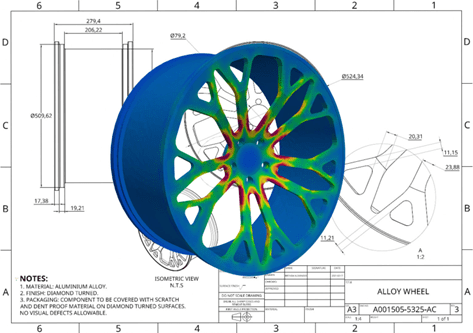Our colleague Mark Poppin at Babel Tech Reviews, now part of Jon Peddie Research, ran a series of workstation-class benchmarks on a family of Nvidia RTX 4000 add-in boards (AIBs). With little to no change, Nvidia uses its GPUs in multiple products, such as gaming AIBs, workstation AIBs and GPU-compute AIBs. Running workstation tests on the highest-clock–speed gaming GPUs gives a very good view of what could be expected from the workstation version of the AIBs when they come out. Workstation AIBs typically have the GPU and memory clocks turned down a notch to reduce heating and extend life. They also often run 24/7 in mission-critical applications, so failure is not an option.
As might be expected, the RTX 4090 showed astoundingly great results: over 70% better on average than the RTX 3080 Ti and an average of 32% better than the 4080.
Sixty-six tests were run on each AIB using AIDA64 GPGPU, Blender 3.3.0, Geekbench, OctaneBench, Sandra 2020 GPGPU, SPECviewperf 2020 v3.1 GPU and SPECworkstation 3.1 GPU. The test scores are available upon request. The RTX 4090 wouldn’t run one test: the Sandra 2020 Half-Float Shaders Native.
An example of a professional graphics application is a design program like Hexagon’s MSC Apex Generative Design.

Hexagon built its MSC Apex Generative Design from the ground up using GPUs. Not only is the finished product faster, but it also combines the functions of design, meshing and analysis into one product. (Source: Hexagon)
When Nvidia releases its workstation versions of the RTX 4000 series AIBs, they are going to bring an impressive uplift in performance. Also, the AIBs tested had 24 GB (4090), 16 GB (4080) and 12 GB; Nvidia will likely increase the memory size for the workstation class. Prices would be higher, too, but there are good reasons for that.
Many professional graphics applications run on Linux. Nvidia’s 06 Linux driver is now available with RTX 4090 series support. The Nvidia 520 series driver implements over-the-air updates in the Proton and Wine Nvidia NGX build. For applications that use OpenGL or Vulkan, Nvidia’s Vulkan driver showed amazing results in Basemark’s v1.2 benchmark, indicating an 85% improvement in performance over an RTX 3090.
When Nvidia, AMD or Intel provide workstation AIBs, they also supply application-specific drivers known as certified drivers. It is one of the distinguishing features of a workstation AIB, but it adds cost to create those special drivers. However, some OEMs have provided systems they classify as a workstation that are fitted with gaming AIBs and no certified drivers. Several end users have done the same thing.
Professional graphics programs like Abaqus’s Eigensolver rely on certified drivers.

Abaqus has several features that benefit from GPU acceleration. For instance, Abaqus gets a performance boost when the AMS Eigensolver comes into play for full vehicle models with a large number of nodes. (Source: Dassault Systèmes)
Nvidia and AMD also offer ECC memory on their workstation AIBs, which is more expensive. So end users who are short on money will gamble on the reliability of the AIB and use gaming AIBs with professional applications. It seems shortsighted considering the cost of losing a design or data run, and there have been some horror stories. However, there have also been as many success stories. It’s like life insurance: You wonder why you pay for it, and one day, you’re glad you have it.
Nvidia and other AIB suppliers offer overclocking and underclocking capability. If the AIBs are underclocked, then it could run cooler and last longer.

Finite element analysis also can benefit from GPU acceleration, delivering higher performance at a lower cost to enable simulation earlier in the design process. In this example, finding potentially weak points in a vehicle alloy wheel. (Source: Adobe Stock)
What is to be learned from this?
The Nvidia RTX 4090 is a performance leader in probably every segment and a dramatic step up from the previous generation. We haven’t seen this big a generational improvement in quite some time. Although the AIB is expensive — $1,599 or higher — it should serve well for at least the next five years, which amortizes to less than a dollar a day. That sounds like a pretty good ROI.
Advertisement






